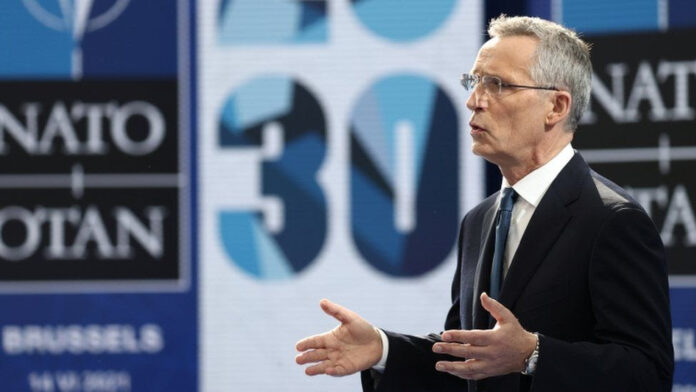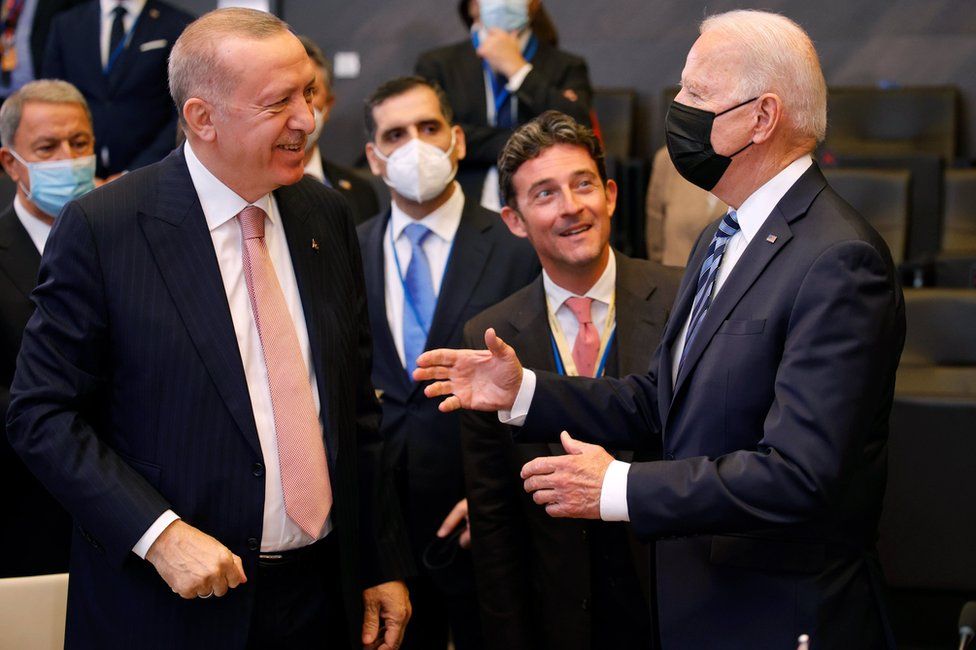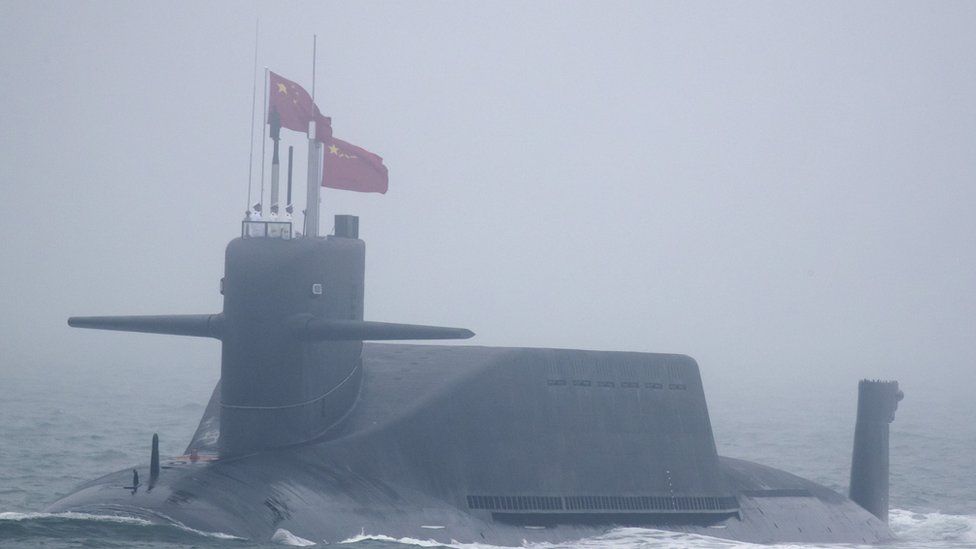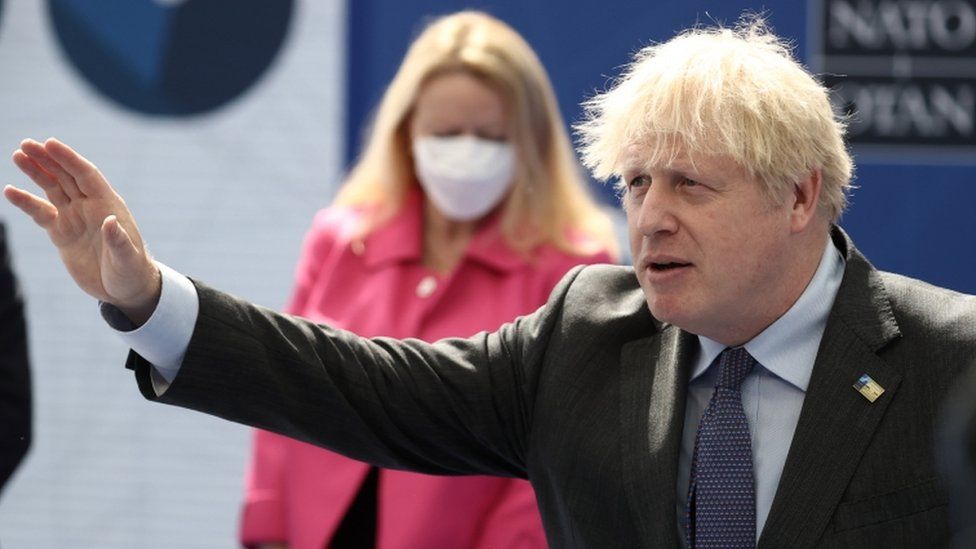
The head of Nato has urged members to respond to China’s rise at a summit designed to shore up US support for the Western alliance.
The summit in Brussels issued a statement describing China’s behaviour as a “systemic challenge”.
They also agreed to keep Kabul airport running as the US and its allies withdraw troops from Afghanistan.
Secretary-General Jens Stoltenberg said the summit was a “pivotal moment” for the alliance.
It is US President Joe Biden’s first Nato meeting since taking office.
Nato is a powerful political and military alliance between 30 European and North American countries. It was established after World War Two in response to the threat of communist expansion.
In recent years, the alliance came under strain as leaders debated its purpose and funding.
Tensions grew during the presidency of Donald Trump, who complained about his country’s financial contributions to the alliance and questioned the US commitment to defend European partners.

In contrast, his successor Mr Biden has sought to reassert American backing for the 72-year-old alliance.
“I want to make it clear: Nato is critically important for US interests,” Mr Biden said as he arrived at the summit on Monday.
His country, he said, had a “sacred obligation” to observe Article 5 of Nato’s founding treaty, which commits members to defend each other from attack.
Why is Nato focusing on China?
According to the summit’s communiqué (concluding statement), China’s “stated ambitions and assertive behaviour present systemic challenges to the rules-based international order and to areas relevant to Alliance security”.

The document says China is rapidly expanding its nuclear arsenal, is “opaque” in the modernisation of its military and is co-operating militarily with Russia.
“We remain concerned with China’s frequent lack of transparency and use of disinformation,” it adds.
“We’re not entering a new Cold War and China is not our adversary, not our enemy,” Mr Stoltenberg told reporters at Nato headquarters ahead of the summit.
“But we need to address together, as the alliance, the challenges that the rise of China poses to our security.”
China is one of the world’s leading military and economic powers, whose ruling Communist Party has a tight grip on politics, daily life and much of society.
Nato has become increasingly concerned about the growing military capabilities of China, which it sees as a threat to the security and democratic values of its members.
In recent years, the alliance has also grown wary of China’s activities in Africa, where it has set up army bases.
What is Nato?
- The North Atlantic Treaty Organisation, known as Nato, is the world’s most powerful regional defence alliance
- It was set up in 1949, after World War Two, to counter the threat of communist expansion
- It was founded on the principle of collective defence between allies
- It originally had 12 members, but now has 30
On Monday, Mr Stoltenberg said China was “coming closer” to Nato in terms of its economic, military and technological capabilities.
That assessment was echoed by UK Prime Minister Boris Johnson, who said there is a need to manage the challenges posed by China.
“When it comes to China, I don’t think anybody around the table wants to descend into a new Cold War with China,” Mr Johnson said on arrival at the Nato summit.

Nato’s tough message on China followed criticism of the country by the G7, a group of major economies that met for a summit in England last week.
In a communiqué G7 leaders criticised China for alleged human rights abuses and demanded a transparent investigation of the origins of Covid-19 in the country.
In response, China accused the G7 of “lies, rumours and baseless accusations” in a statement through its embassy in the UK.
What was agreed about Afghanistan?
America and its Nato allies have been withdrawing troops from Afghanistan since President Biden announced in April that all US forces would leave the country by 11 September.
They have been deployed there for nearly 20 years, initially in response to the 9/11 attacks on America.
Since the announcement there has been a surge in violence across the country which the government, the US and Nato blame on the Taliban, a hardline Islamist movement.
In the communiqué, Nato says it will provide “transitional funding to ensure continued functioning of Hamid Karzai International Airport”, “recognising its importance to an enduring diplomatic and international presence, as well as to Afghanistan’s connectivity with the world”.
Alliance member Turkey has offered to guard and operate the airport after other troops leave.
The alliance also promises to continue to provide training and financial support for Afghanistan’s security forces.
Climate change, cyber-security and Russia were also on the agenda for the Brussels summit.
SOURCE: BBC




